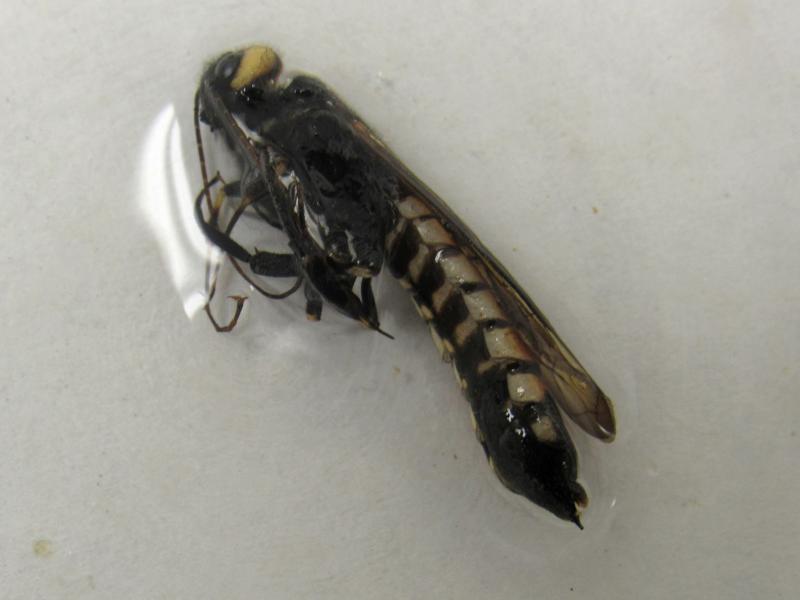BALTIMORE – The U.S. Department of Agriculture confirmed today that a live wood-boring wasp that U.S. Customs and Border Protection (CBP) agriculture specialists recently intercepted in Baltimore is the first time this specimen has been reported in the United States.
While inspecting a shipment of aluminum coils from Greece, CBP agriculture specialists discovered the wasp and boring holes in the wood packaging material. Wood-boring wasps are known to lay their eggs in trees where they emerge later as adults. Specialists secured the shipment and submitted the specimen to USDA entomologists for identification.

“To record an agriculture pest ‘first-in-nation’ discovery is rewarding for the hard work that Customs and Border Protection agriculture specialists do every day to intercept invasive insects, federal noxious weeds, and plant and animal diseases that threaten our nation’s agriculture industries and our economy,” said Casey Durst, CBP Director of Field Operations in Baltimore. "Agriculture exports are one of our nation’s key economic drivers and agriculture protection remains a core enforcement priority for CBP. We will remain vigilant and intercept potential agriculture threats at our ports of entry to help keep our economy prosperous."
The shipment was destined to an address in Baltimore. CBP ordered the container and its contents to be re-exported.
CBP Agriculture Specialists have extensive training and experience in the biological sciences and agricultural inspection. On a typical day nationally, they inspect over 1 million people as well as air and sea cargo imported to the United States and intercept 352 agriculture pests and 4,638 prohibited meat, plant materials or animal products. Learn what CBP accomplishes by visiting Typical CBP Day in 2017.

Follow us on social media: